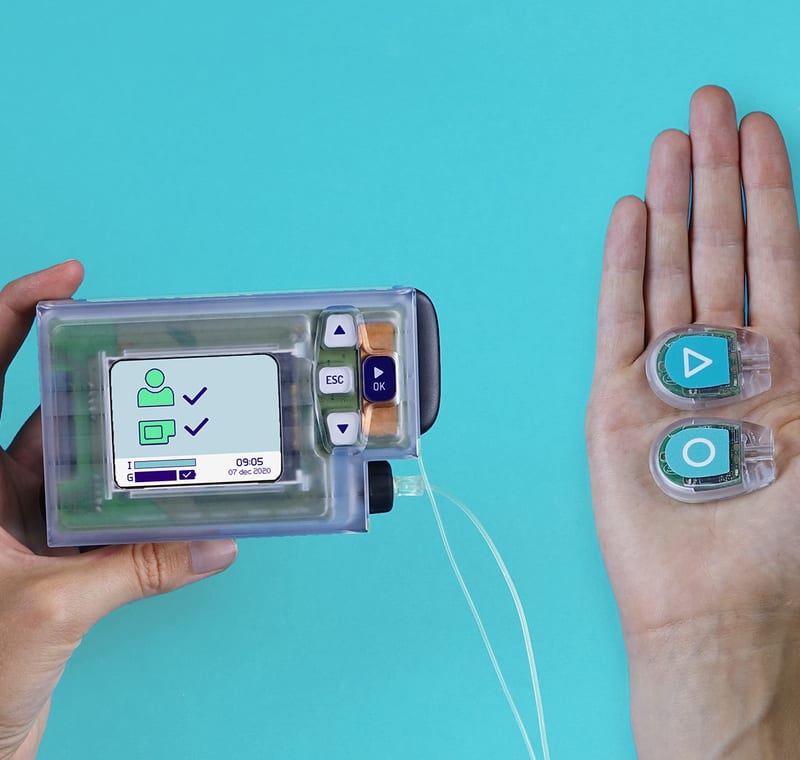Artificial pancreas - For children with type 1 diabetes
Imagine a future where children with type 1 diabetes can just be kids - without constant worries about their blood sugar or having to administer insulin. Thanks to the innovative artificial pancreas, this future is getting ever closer.

The brains behind this innovation is engineer Robin Koops, who has diabetes himself. He has created something unique: the Inreda AP, an artificial pancreas that can change the lives of people with diabetes. This small, but powerful, device takes control of blood sugar levels and does all the heavy lifting itself, such as automatic administration of insulin and glucagon. Insulin is like a key that opens our cells to use sugar from our blood, keeping our energy levels up. On the other hand, glucagon ensures that when we need energy, our liver releases extra sugar into our blood, as a natural energy boost.
In the Netherlands, there are about 7,000 children aged between 0 and 18 who have type 1 diabetes. They need to monitor their blood sugar levels several times a day and administer insulin themselves regularly to keep blood sugar levels stable. In short: type 1 diabetes is never just for a while.
‘Reggeborgh Foundation is supporting research into the artificial pancreas to make it available to young people from the age of 12 sooner, because they’re the future. Finally, everyone wants a healthy and carefree childhood, as a basis for a normal life, which is also what we want to achieve with the artificial pancreas.’
- Robin Koops
As children get older, diabetes can be an additional stressor. For example, young children may resist pricking, injecting or inserting a sensor or infusion set. Misunderstanding may also arise about being 'different from others' because they cannot just eat everything or engage in carefree activities. In adolescence, resistance to daily pricking and injecting insulin may become even more pronounced. Adolescents want to push boundaries and try new things, and this can have major and negative consequences if you have type 1 diabetes.
The impact of the artificial pancreas? Less worry about blood sugar levels and more time for other pursuits, like doing fun things with friends, playing sports, exploring the world - exactly what teenagers should be doing.
